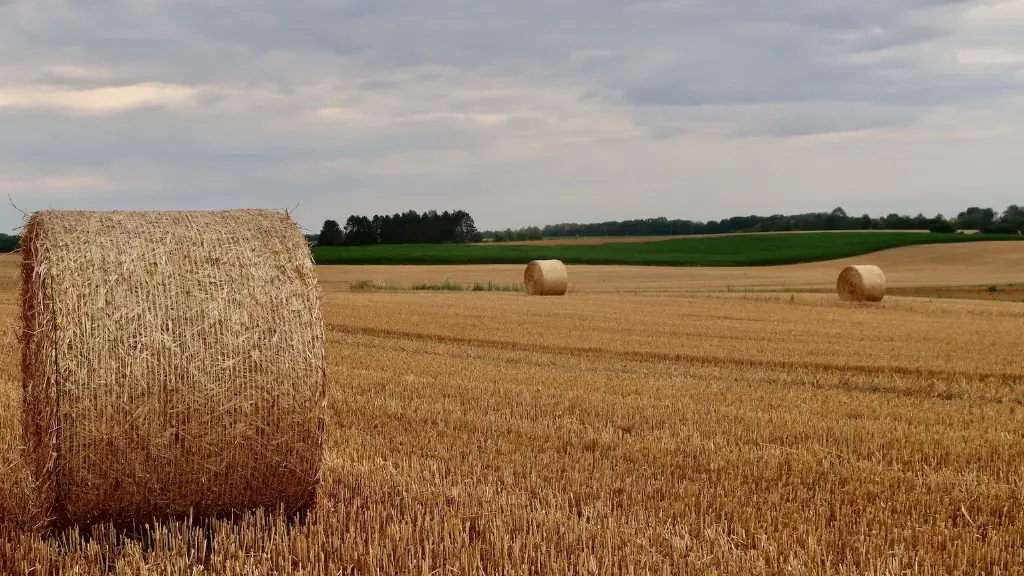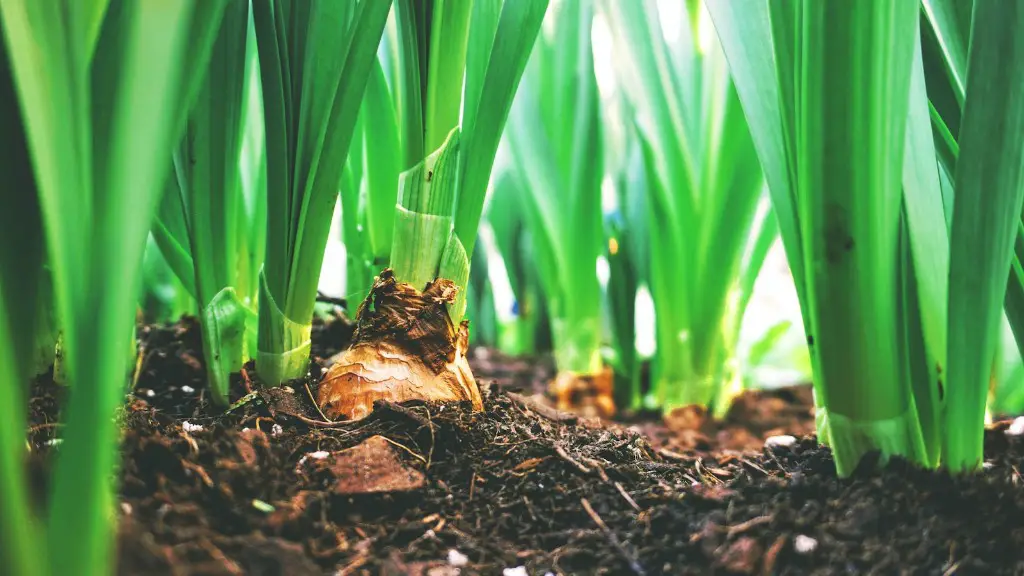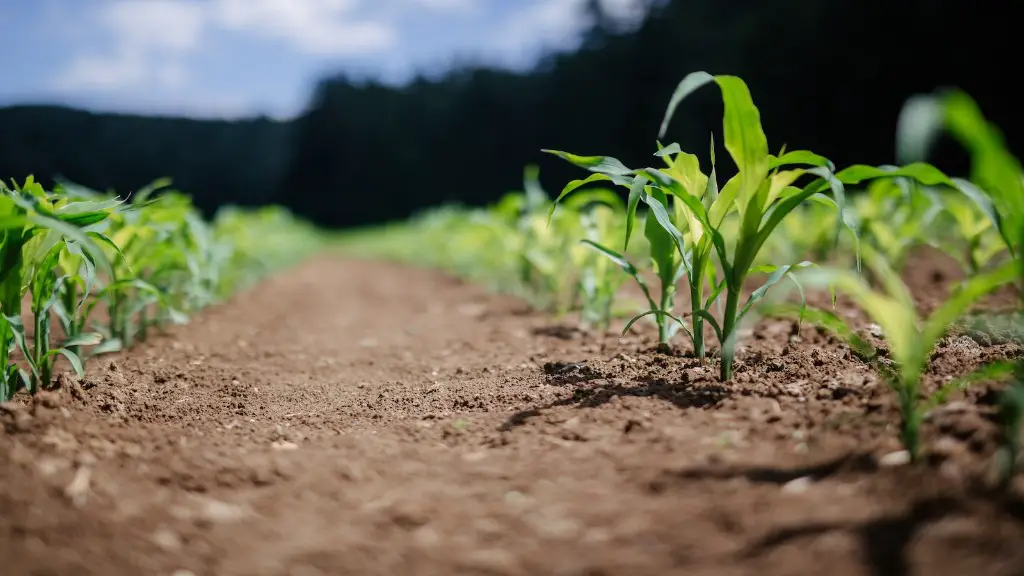Soil testing is important in agriculture for a variety of reasons. First, it can provide information on the physical properties of the soil, including texture, structure, and porosity. This information is important for farmers to know in order to make decisions about tillage, irrigation, and other management practices. Second, soil testing can give information about the fertility of the soil, including the levels of essential nutrients such as nitrogen, phosphorus, and potassium. This information is important for farmers to know in order to make decisions about fertilizer applications and crop rotations. Third, soil testing can give information about the presence of contaminants in the soil, such as heavy metals or salts. This information is important for farmers to know in order to make decisions about crop selection and pest management.
Soil testing is important in agriculture because it helps farmers to determine the nutrient content of their soil. This information is essential for ensuring that crops receive the nutrients they need to grow and produce healthy yields. Soil testing can also help farmers to optimize their irrigation and fertilizer management practices, which can improve crop yields and quality while reducing production costs.
Why is soil important in agriculture?
Soil is critical for successful agriculture as it is the original source of the nutrients used to grow crops. The nutrients move from the soil into plants that we eat, like tomatoes. Nutrients are also a part of the food animals (like cows) eat. In the end, we benefit from healthy soil.
A soil test is the best way to determine the status of the soil’s acidity. The concentration of hydrogen ions is marked as pH, representing a certain ratio between hydrogen (H+) and hydroxyl (OH-) ions in the soil. A soil test can also provide information on other important factors such as nutrient levels, organic matter content, and drainage.
What are the economic benefits of soil testing for the farmer
Farmers can improve their yields and profitability by providing necessary nutrients to their crops. By increasing the consistency of nutrient availability across a field, farmers can ensure more uniform crop growth. This can help to improve the overall quality of the crops and make them more resistant to pests and diseases.
Healthy soils are essential for many things, including healthy plant growth, human nutrition, and water filtration. Soil supports a landscape that is more resilient to the impacts of drought, flood, or fire. Soil also helps to regulate the Earth’s climate and stores more carbon than all of the world’s forests combined. Therefore, it is important to take care of our soils and to promote healthy soils whenever possible.
What are 4 reasons why soil is important?
There is no denying the importance of soil in our lives. It is responsible for putting food on our plates, purifying our water, protecting us against flooding and combatting drought. Soil is also key to tackling climate change as it captures and stores vast amounts of carbon. In other words, there is no food security without healthy soils.
Unfortunately, our soils are under immense pressure from intensive farming practices, urbanisation and climate change. It is estimated that we have lost one-third of the world’s soils due to degradation. This is a huge problem as healthy soils are essential for sustaining life on earth.
We need to do more to protect and restore our soils. This includes reducing soil erosion, increasing organic matter and improving drainage. We also need to promote sustainable farming practices that protect and improve soil health. Only by working together can we ensure that our soils are healthy and productive for generations to come.
A soil test is an important tool that can be used to determine the fertility of the soil. The test can be used to identify nutrient deficiencies, potential toxicities from excessive fertility, and inhibitions from the presence of non-essential trace minerals. The test is used to mimic the function of roots to assimilate minerals.
Why are soil tests important?
A soil test can be important for several reasons: to help optimize crop production, to protect the environment from contamination by runoff and leaching of excess fertilizers, to aid in the diagnosis of plant culture problems, to improve the nutritional balance of the growing media, and to save money and conserve energy.
Soil analysis is a key part of developing an effective Nutrient Management Plan for optimizing crop production. It provides crucial information about the soil’s chemical, physical, and biological status. This information can be used to improve soil management and make informed decisions about fertility and other soil-related practices.
What is soil testing in agriculture
Soil testing is essential to farmers in order to assess the nutrient levels and pH of their soil. By testing the soil, farmers can determine which fertilizers or soil amendments are needed to correct any deficiencies. Soil testing can also help farmers prevent problems before they occur, by identifying potential issue areas and taking corrective measures. Ultimately, soil testing ensures that crops receive the optimal growing conditions, leading to a higher final yield.
Loamy-textured soils are commonly described as having a medium texture with functionally-equal contributions of sand, silt, and clay. These medium-textured soils are often considered ideal for agriculture as they are easily cultivated by farmers and can be highly productive for crop growth. Loamy soils typically have good drainage and aeration, while also being able to retain moisture and nutrients effectively. This makes them ideal for supporting healthy plant growth.
What are the 3 most important things in soil?
Soil is essential for plant growth and cultivation. It is a naturally occurring resource that consists of a mixture of minerals, organic matter, water, and air. The typical soil consists of approximately 45% mineral, 5% organic matter, 20-30% water, and 20-30% air. These components work together to provide nutrients, support, and moisture to plants.
Without healthy soils, plants would not be able to grow. Soils anchor roots, hold water, and store nutrients that plants need to survive. Without these important functions, our landscapes would be very different.
What are two reasons why soil is important
The soil is a critically important resource that supports plant growth and provides water filtration and regulation. Plant roots rely on the soil for anchorage and nutrients, and the soil helps to keep our water clean. Soil filters and retains water, and regulates water flow which helps prevent flooding. Soil’s water filtration capacity is what keeps our groundwater free from pollutants, too. Therefore, it is essential that we protect and conserve this valuable resource.
There are three main ways to test the soil to see how much water it can hold: the plasticity test, the thumb penetration test, and the pocket penetrometer test. The plasticity test is the most accurate, but the thumb penetration test and pocket penetrometer test are both quick and easy ways to get a general idea of the soil’s moisture content.
How does agriculture affect soil?
The agricultural practices that have the most detrimental effects on soil quality are those that lead to erosion, desertification, salinization, compaction, and pollution. These practices can have a negative impact on water resources, causing pollution from nutrient and pesticide leaching and the intrusion of seawater into aquifers.
Without soil, there would be no life on Earth. Soil is essential for plant growth, and plants are essential for our survival. The relationship between soil and plants is a symbiotic one; each depends on the other for survival. Soil provides plants with the water and nutrients they need to grow, while plants help to keep the soil healthy by preventing erosion and providing organic matter.
Final Words
Soil testing is important in agriculture because it allows farmers to identify the nutrients that are present in their soil and to determine whether or not their soil is suitable for growing crops. Without soil testing, farmers would be unable to determine the best way to fertilize their fields and would likely end up growing crops that are not nutrient-rich.
Soil testing is important in agriculture for a variety of reasons. It can help farmers to determine the best type of fertilizer and lime to use, as well as the best cropping practices. It also helps farmers to monitor soil health and identify any potential problems.




